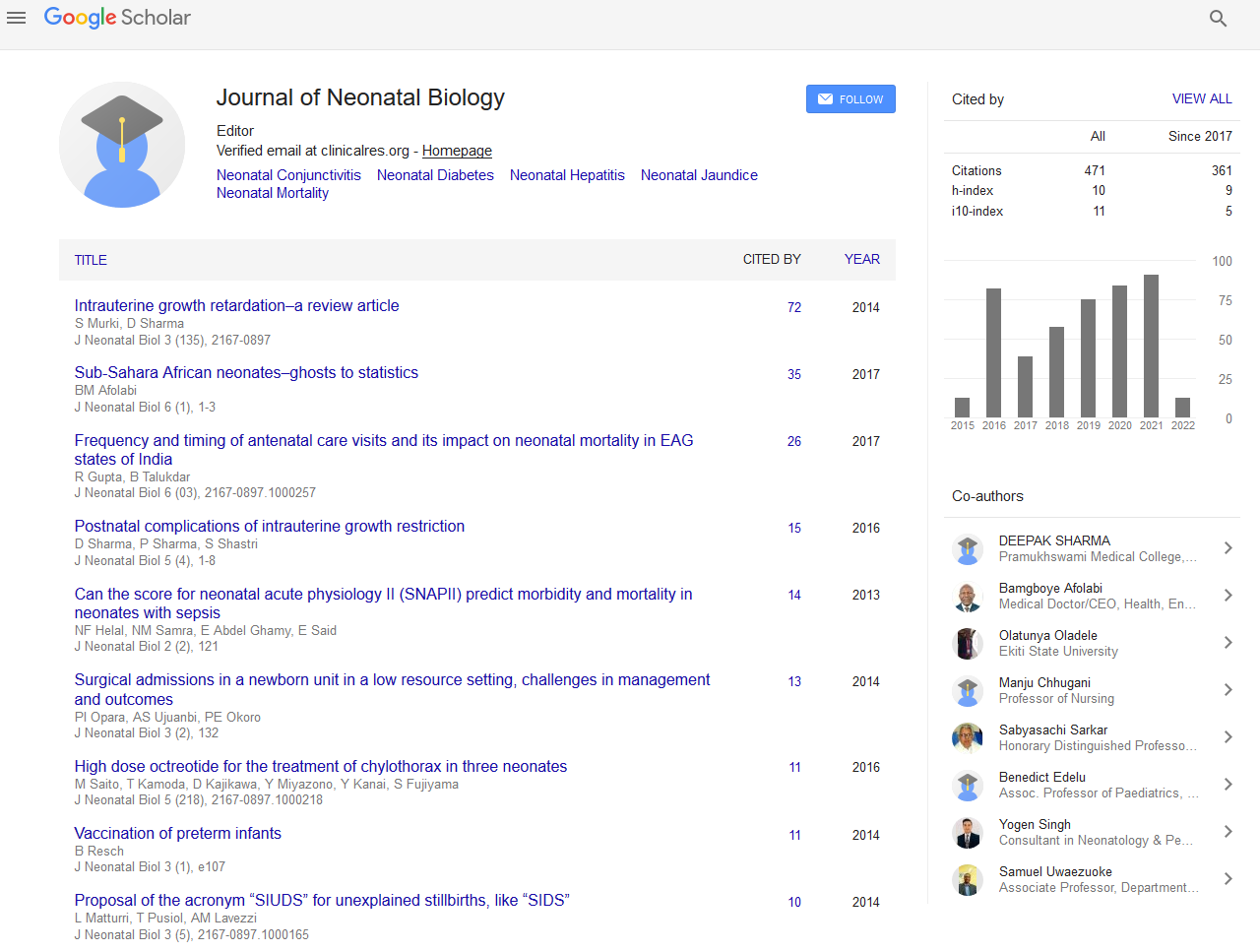PMC/PubMed Indexed Articles
Indexed In
- Genamics JournalSeek
- RefSeek
- Hamdard University
- EBSCO A-Z
- OCLC- WorldCat
- Publons
- Geneva Foundation for Medical Education and Research
- Euro Pub
- Google Scholar
Useful Links
Share This Page
Journal Flyer

Open Access Journals
- Agri and Aquaculture
- Biochemistry
- Bioinformatics & Systems Biology
- Business & Management
- Chemistry
- Clinical Sciences
- Engineering
- Food & Nutrition
- General Science
- Genetics & Molecular Biology
- Immunology & Microbiology
- Medical Sciences
- Neuroscience & Psychology
- Nursing & Health Care
- Pharmaceutical Sciences
Anemia in pregnancy and in the immediate postpartum period: Prevalence and risk factors in pregnancy and childbirth
9th International Conference on Neonatology and Pediatric Neurology
November 28-30, 2016 Valencia, Spain
Xavier Urquizu i Brichs
Hospital Uniersitari MutuaTerrassa, Spain
Posters & Accepted Abstracts: J Neonatal Biol
Abstract:
Introduction & Objective: The objective of the study was to assess the prevalence of anemia in the immediate postpartum period (48�??72 h), determine the risk factors and the value of hemoglobin before birth to reduce postpartum anemia. Material & Methods: A prospective, observational and longitudinal study, that included 1426 women who delivered consecutively and agreed to participate in the study, was done. Different variables, analytical, epidemiological, fetal and maternal symptoms were studied. Results: The prevalence of anemia in the postpartum period was 49.7%. The most important risk factors were antepartum anemia and type of delivery. The types of delivery most influencing postpartum anemia were forceps (82.3%), the ventouse 67%, caesarean section (58.2%) and vaginal delivery (37.2%). In the multivariate study, was found as the most important independent risk factors, the hemoglobin in the delivery day (OR 6.16, CI:3.73�??10.15) and instrumental delivery (OR: 4.61, CI:3.44�??6.19). Other independent risk factors were hemoglobin in the third trimester, episiotomy and perineal tears, ethnicity, birth weight, parity and intra/postpartum complications. Conclusions: Anemia in the immediate postpartum is a prevalent problem. The factors most associated postpartum anemia were antepartum anemia and instrumental delivery. If patients arrive at the day of delivery with hemoglobin�?�12.6 g/dl and were restricted to necessary instrumented deliveries and caesarean sections, episiotomies and we could avoid perineal tears we can decrease anemia in the immediate postpartum period very significantly.
Biography :
Xavier Urquizu i Brichs has completed his Medicine at Universitat Rovira i Virgili and specialization in Obstetrics & Gynecology at Hospital Universitari MutuaTerrassa- Universitat de Barcelona. He is doing his Post-doctoral studies in Universitat Autonoma de Barcelona (UAB). He is specialized in maternofetal medicine and high risk pregnancies and he is Member of the Bioethics Committee at Hospital Universitari MutuaTerrassa, Barcelona, Spain.
Email: xurquizu@gmail.com


